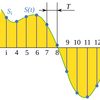Logic 9.1 released 64bit support + bugfixes
release notes http://support.apple.com/kb/ts2565
- Read more about Logic 9.1 released 64bit support + bugfixes
- 2 comments
- Log in or register to post comments
16 bit 44.1 khz, vs. . 24 bit 96 khz monitors
I am currently looking to upgrade the way I mix music. Currently, I have a fast track ultra and I'm just using a pair of 50$ monitor headphones. I have done test recordings of 16 bit, 44.1 Khz vs. 24 bit 96 khz recordings, and I cannot hear a shred of difference. (I know my fast track ultra is capable of recording that bit rate). So I'm thinking it's the fact that I use crappy headphones.
Record at 24bit - 48KHz = play back is sharper
Hello,
Does anyone know why this happens: e.g. I record a note (D) on my flute at 24bit - 48KHz, it plays back as the same note in Cubase 4 LE then when I mix the track down to 16bit - 44KHz and play the new .wav file in windows media player or VLC the sound is much sharper in pitch nearly a F.
does PRO TOOLS LE work on windows vista home premium 32 bit?
does PRO TOOLS LE work on windows vista home premium 32 bit?
I'm going to buy the Digidesign 002 interface with pro tools le software but I'm unsure whether my vista home premium 32 bit will support it, as Digidesign won't seem to commint to supporting it
appreciate any help
thanks
OK So recording in 96k is awesome...
Except it makes my computer cry and cut its wrists. :D It's so nice though, mixes sound brighter and livelier, and I can actually keep the bass frequencies in and not have to make super heavy cuts all the time just to attain clarity. Sorry this isn't much of a forum topic, but all my old recordings were in 44.1 so I felt I had to share it with you all. LOL
- Read more about OK So recording in 96k is awesome...
- 21 comments
- Log in or register to post comments
How to convert 32 bit to 24 bit on a Mac
I am looking for a way to convert 32 bit (Cubase file) to 24 bit on a Mac
P.s I don't have cubase.
Does Audacity do this. What program does?
TW
- Read more about How to convert 32 bit to 24 bit on a Mac
- 4 comments
- Log in or register to post comments
Windows XP 64bit
Hi there.
I have recently acquired a new PC running a dual core processor and 8GB of RAM.
I've installed XP 64bit as it's the only operating system that will support this.
Does anyone here have experience with 64bit?
I mainly use Sonar, Nuendo and Reason, and need to know if there's anything I should take into account before I try configuring it.
- Read more about Windows XP 64bit
- 29 comments
- Log in or register to post comments
sampling rates and buffer
just a quick question:
sampling rates - will a higher rate give you higher quality? Or is this just a measurement of how fast the interface syncs with the clock? I am a little confused about this.
- Read more about sampling rates and buffer
- 7 comments
- Log in or register to post comments
24-bit/192khz mixing console?
Hi everyone,
I'm looking to upgrade my mixing console in my studio. I want to get a console that is either analog (with firewire card) or digital that supports 192 kHz sampling. So far, I've only been able to find up to 96 kHz (other than the c|24 by DigiDesign, but I'm using Logic and FireWire).
- Read more about 24-bit/192khz mixing console?
- 13 comments
- Log in or register to post comments
Creating 24bit CDs, Masterlink, only option?
Hi all,
I have a knowledge problem.
I have been recording in a Boss BR900CD and it records in 24 bit. I've done 2 tracks for a friend of mine and she is going to put them on her forthcoming debut album. Obviously I'm relatively new to recording.
